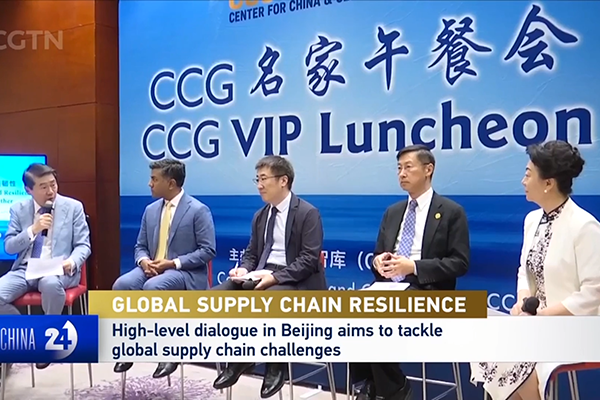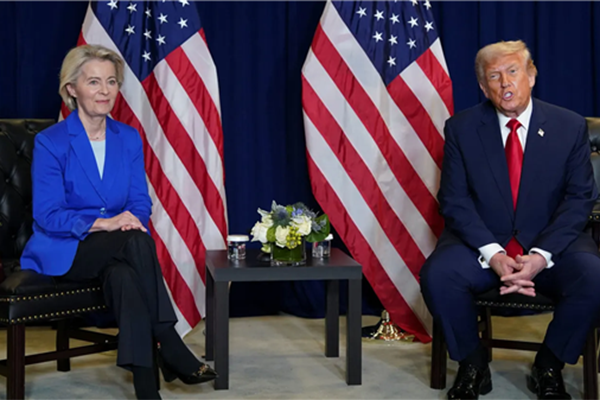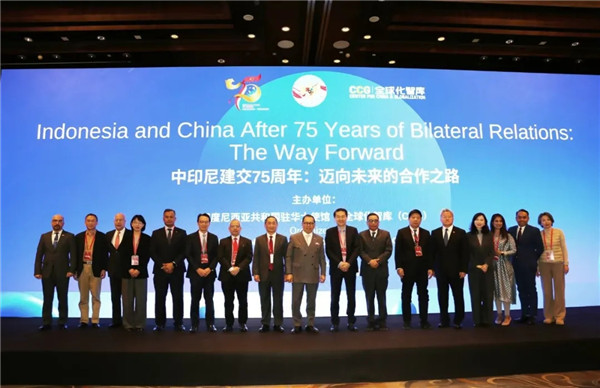Forum urges end to green protectionism
November 07 , 2025 Government, business, and academic leaders speak at a parallel session of the 8th Hongqiao International Economic Forum in Shanghai on Nov 6, 2025
Government, business, and academic leaders speak at a parallel session of the 8th Hongqiao International Economic Forum in Shanghai on Nov 6, 2025
Government, business, and academic leaders from around the world denounced protectionist trade policies that hinder the green transition at a parallel session of the 8th Hongqiao International Economic Forum in Shanghai on Nov 6, 2025.
Participants at the sub-forum, titled “Promoting Green Trade Liberalisation and Accelerating the Global Green Transition”, stressed the urgency of international cooperation to remove obstacles to the free flow of environmentally friendly goods and services.
The discussion centered on the tension between rising global demand for green technologies and the growing trend of trade protectionism, often reflected in carbon tariffs and inconsistent international green standards.
“The green revolution is becoming a global consensus,” said Wang Huiyao, founder and president of the Center for China and Globalization and a former counselor to the State Council.
Wang also advocated for China to share its green development expertise with developing nations and cooperate with developed nations on technology and standards.
Pascal Lamy, former director-general of the World Trade Organization, warned that unilateral actions risk evolving into new trade barriers, raising costs and uncertainty.
“Without broad international consensus, unilateral measures can easily turn into new trade barriers, increasing trade costs and uncertainty, and hindering global climate goals,” he emphasized.
Long Yongtu, China’s former chief negotiator for WTO accession, echoed this concern, citing trade protectionism and unilateralism as significant obstacles to green trade.
He stressed the importance of focusing on the production of green products, saying that “Only when more green products are produced can green trade flourish.”
The forum also emphasized the scientific urgency of addressing climate change.
Xu Xiaofeng, president of the China Meteorological Service Association, cited UN data indicating the world is nearing the critical 1.5-degree Celsius warming threshold set by the Paris Agreement. He cautioned against politicizing climate change, which delays necessary global action.
Panelists called for a new governance model involving governments, businesses, and international organizations.
Sean Green, president and CEO of BMW Group Region China, advocated for open markets and transparent regulations.
“The automotive industry must look beyond tailpipe emissions and establish comprehensive assessment indicators covering the entire value chain,” Green said, adding that BMW is committed to internationally coordinated carbon footprint calculation standards.
Liu Chang, vice president of Cargill Greater China, shared examples of systemic innovation that can turn green challenges into market opportunities.
Cargill views unified and transparent green rules as essential and has proactively benchmarked against global standards.
A new report from the CCG, “Towards a New Era of Green Trade”, was released during the forum, outlining strategies for promoting green trade liberalization. These include building a more inclusive multilateral trade framework, developing tailored domestic policies, and strengthening international collaboration.
The report also advocates for leveraging digital technologies and establishing a globally unified coding system for green products.






